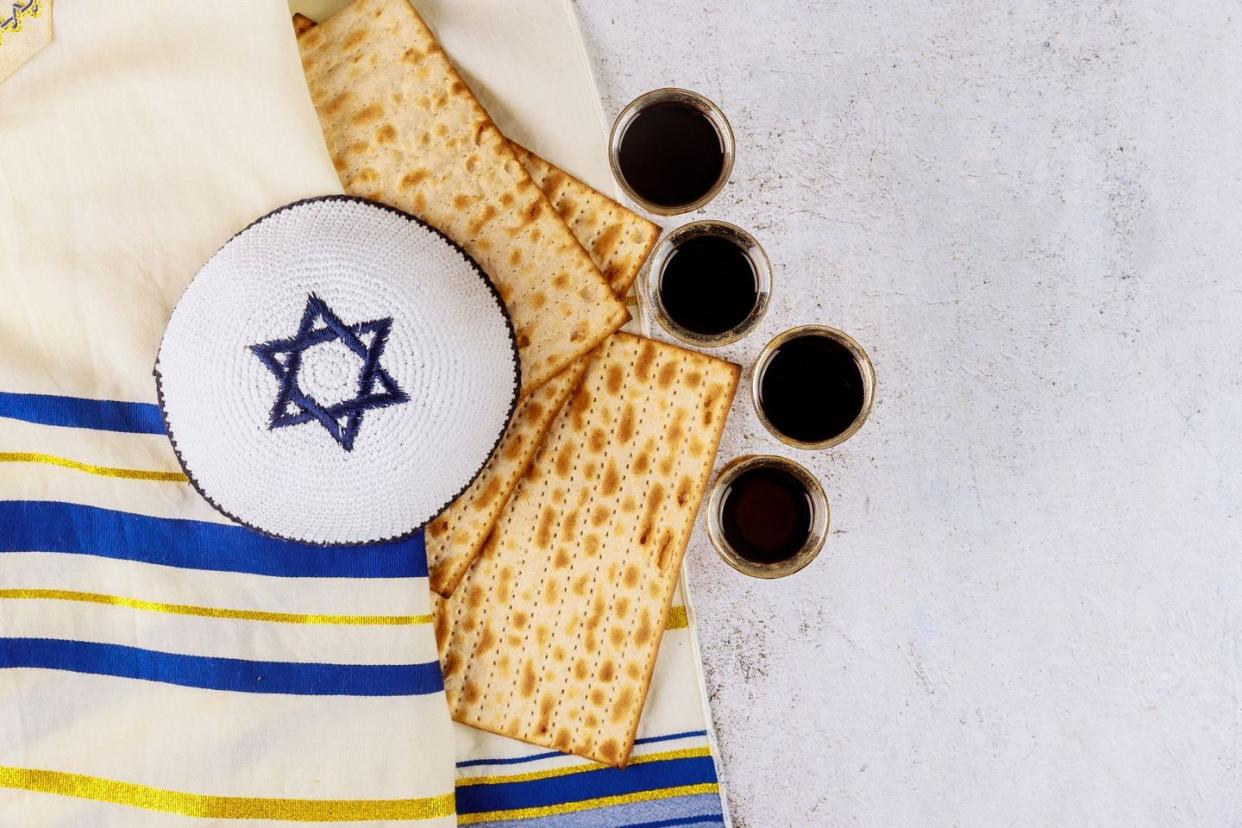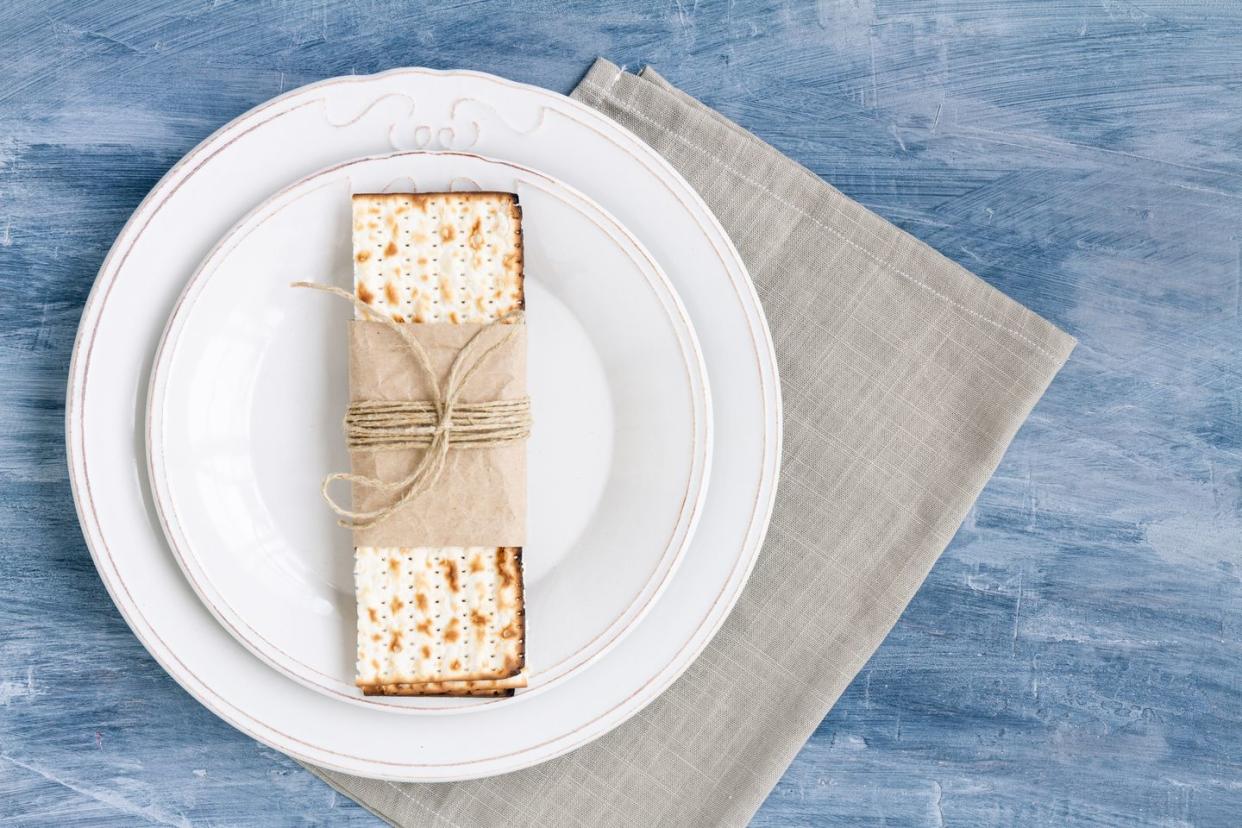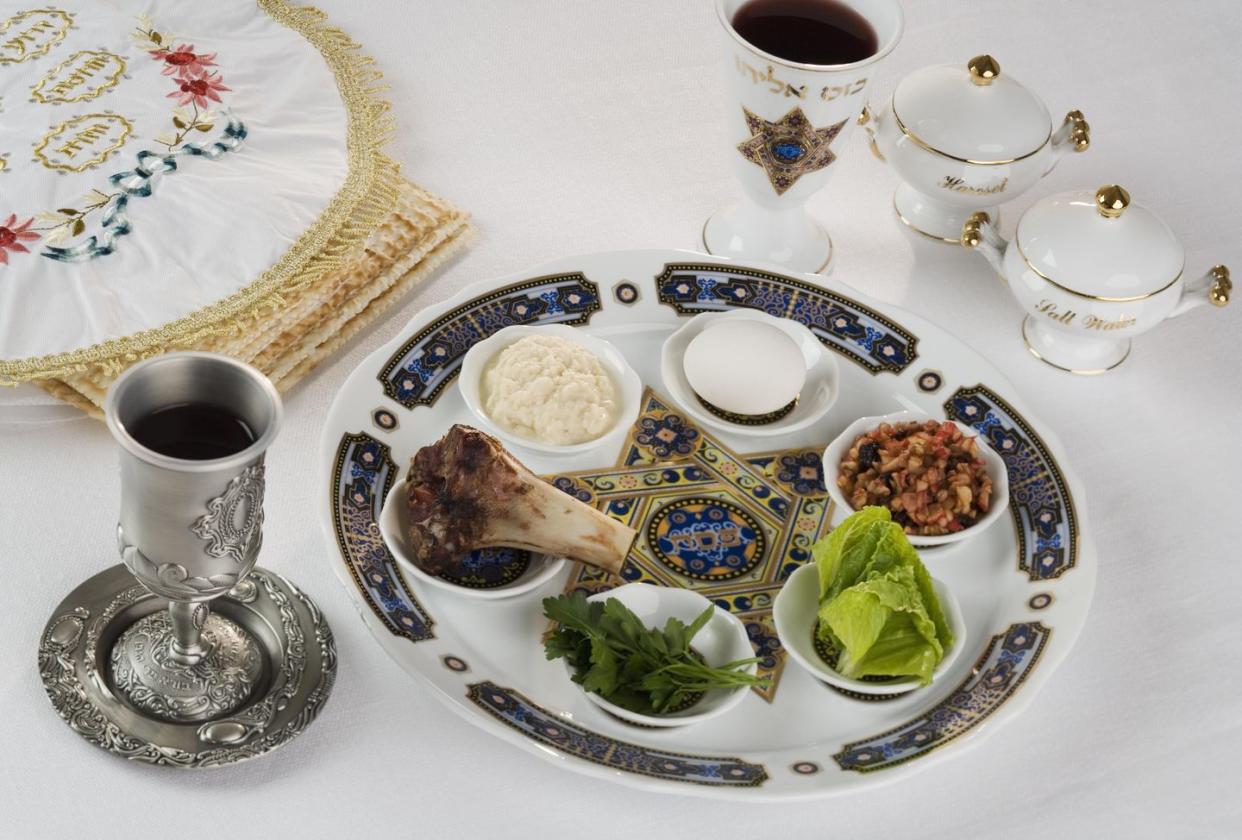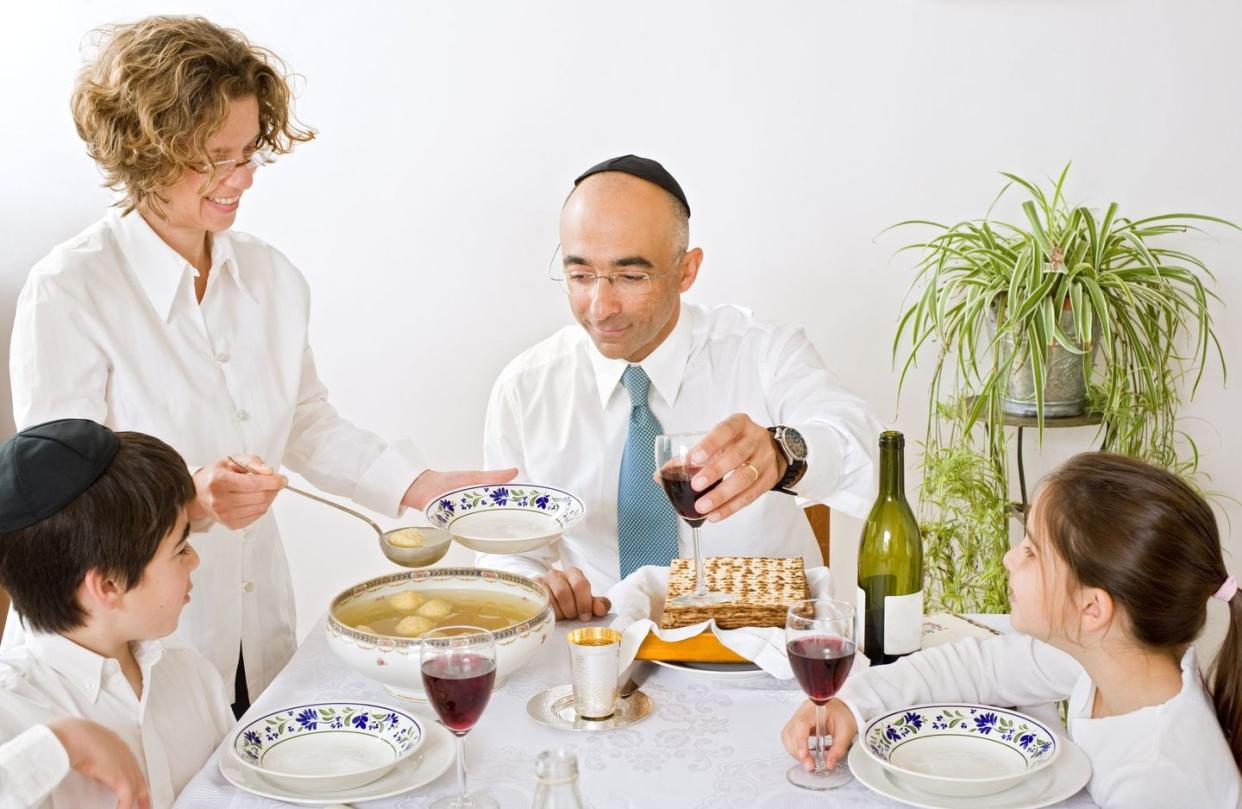The Meaning of Passover—and What to Expect if You're Invited to a Seder Dinner
You’ve probably heard of Passover, the Jewish holiday that commemorates the liberation of the Israelites from slavery in Egypt more than 3,000 years ago. But unless Judaism is your own religious and cultural tradition, you might be a little fuzzy on the details of what Passover is. Consider this your beginner’s guide to Passover, the spiritually significant eight-day (or seven in Israel) holiday that’s literally as old as Moses.
From the biblical story to Passover’s meaning and how it’s celebrated today, we cover all the basics. We even tell you what to expect if a friend invites you to the celebratory Passover meal, Seder, and how to be mindful of a Jewish colleague’s mandatory no-work-allowed days. Let's begin!
What Is the Passover Story?

The story of Passover is told in the Book of Exodus in the Torah—the body of Jewish religious teachings. According to the Hebrew Bible, God instructed Moses to take his people (the Israelites) out of enslavement in Egypt. When the Pharaoh refused Moses, God unleashed 10 plagues on the Egyptians. With each one, God told the Pharaoh, “Let my people go,” until He finally released the last and worst of them all—death of the firstborn.
During the tenth plague, God commanded the Israelites to offer a lamb or goat, which the Egyptians worshiped as one of their gods, as a sacrifice. He instructed them to smear its blood on their doorposts, marking the household as the home of an Israelite. Pesach (pay-saak) translates to “passed over,” because the angel of death passed over these homes and spared the family's firstborn.
The Pharaoh chased the Israelites out of Egypt—forcing them to leave in such haste they didn’t even have time to let their bread rise. Led by Moses, the former slaves fled and began their journey as God’s chosen people.
It’s been over three millenniums since this story of liberation, and Passover is a sacred reminder to Jews of their freedom. According to Rabbi Menachem Creditor, a scholar-in-residence at UJA-Federation of NY, “The Exodus is meant to be experienced throughout the year and every day throughout life by breaking out of fears, comfort zones, and character traits. Breaking through a personal Exodus of their inner Egypt.”
How Is Passover Celebrated Today?

Although Passover is an eight-day celebration, preparation can take weeks. One of the most significant changes for Jews during this time is the way they eat.
Passover Food Rules
During Passover, observant Jews not only eat kosher—they eat kosher for Passover. This means no chametz (leavened or fermented grain, including any grains in contact with water for more than 18 minutes). Think: no bread, pasta, cake, beer, or even ketchup and mustard, which can contain grain-based vinegar. During a thorough search that's often coupled with spring-cleaning, all chametz (usually including flour due to its potential to become chametz) is removed from the home. In its absence, matzah, a flat unleavened bread that serves as a reminder of how quickly the Israelites left Egypt, is eaten.
The Passover Seder
Jews in Diaspora communities observe Seder on the first two nights of Passover (in Israel, it's only the first night) by hosting or attending a Seder dinner packed full of food, symbolism, and tradition.
The word Seder, which translates to “order,” is just that: a 15-step ritual through which Jews relive the experience of liberation from Egypt. Despite the specific steps, the Passover Seder is a celebratory event for friends and families to eat good food, play games, and make memories. Kids are especially encouraged to take part and even have a role at the beginning of Seder, where they ask four questions as a jumping-off point for the retelling of the Exodus.

During this tradition, guests may eat from a Seder plate with symbols pointing to a different facet of the story. Other highlights include the reciting of the Haggadah (a detailed liturgy that describes the story of the Exodus), drinking four cups of wine or grape juice in celebration of freedom, and eating bitter herbs as a reminder of the bitter enslavement of the Israelites.
Near the end of Seder, a guest ceremoniously pours a fifth cup of wine and opens the door for the prophet Elijah, who they hope will come and announce the Messiah’s arrival.
No-Work-Allowed Days
The first two days and the final two days of Passover are no-work-allowed holiday days. Between these days is the four-day intermediate period known as Chol Hamoed, where work is allowed with some restrictions.

When Is Passover 2023?
Passover always occurs in spring during the Hebrew month known as Nisan (or Nissan), as mandated by the Torah. Because it's determined by the lunar Jewish calendar, it falls on a different date every year. In 2023, Passover begins at sundown April 5 and ends at sundown April 13.
Can I Participate in Passover Celebrations Even if I’m Not Jewish?
Yes! Even if you’re not part of the Jewish faith, there are several ways to take part in Passover celebrations during the holiday.
Send your well wishes by saying “Happy Passover” or “Happy Pesach.” You can also wish a “Chag sameach,” equivalent to “Happy Holidays.” According to chabad.org, for those who keep their home kosher for Passover by removing all leavening agents ahead of the holiday, you can wish them a “kosher and joyous Passover.”
It’s also not uncommon for non-Jewish friends and family to attend Seder. If invited, you can always ask your host what to bring, like matzah, kosher wine, or flowers.
When navigating the workplace, take note of several Passover dates where your Jewish colleagues might not be available to attend meetings or answer emails—specifically the first two days and the final two days of Passover, during which no work is allowed. In 2023, that's sundown on April 5 through nightfall on April 7, as well as sunset on April 11 through nightfall on April 13.
You Might Also Like
